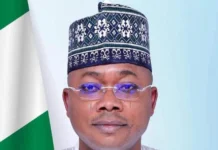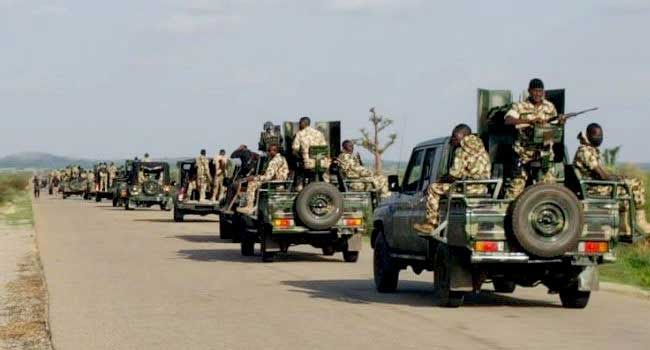 Just before our arrival in Mali, there was open confrontation between Red Beret troops loyal to former President Toumani Toure and Green Beret troops loyal to the putchists leader Captain Amadou Sanogo. These are the two most highly trained regiments of the Malian army. Indeed, the greatest concern in Mali today is the disintegration of the armed forces. They are perpetually at war with themselves rather than against the enemy. This problem will persist over the coming years and there is a limit to the duration of French and African forces in the country. The collapse of the Malian armed forces underscores the need for comprehensive Security Sector Reforms. During our mission to Mali however, we noted with concern that Captain Sanogo, the putchists leader and key actor in the crisis has been appointed to head the Committee on the Reform of the Armed Forces. It is a dangerous move as unity and cohesion of the armed forces cannot be guaranteed by a military partisan and putchists. As efforts to train and equip the the Malian Defense and Security Forces continue, Captain Sanogo must be prevented from playing any strategic role as the road map implementation process is rolled out.
Just before our arrival in Mali, there was open confrontation between Red Beret troops loyal to former President Toumani Toure and Green Beret troops loyal to the putchists leader Captain Amadou Sanogo. These are the two most highly trained regiments of the Malian army. Indeed, the greatest concern in Mali today is the disintegration of the armed forces. They are perpetually at war with themselves rather than against the enemy. This problem will persist over the coming years and there is a limit to the duration of French and African forces in the country. The collapse of the Malian armed forces underscores the need for comprehensive Security Sector Reforms. During our mission to Mali however, we noted with concern that Captain Sanogo, the putchists leader and key actor in the crisis has been appointed to head the Committee on the Reform of the Armed Forces. It is a dangerous move as unity and cohesion of the armed forces cannot be guaranteed by a military partisan and putchists. As efforts to train and equip the the Malian Defense and Security Forces continue, Captain Sanogo must be prevented from playing any strategic role as the road map implementation process is rolled out.
At the end of January 2013, the Malian National Assembly unanimously approved a political road map to restore democracy and promote national reconciliation. The interim President, Dioncounda Traore has committed his Administration to implementing this roadmap and announced that presidential elections are scheduled for 7th July 2013. Of course this date assumes that security would have been re-established by then, which is not at all certain. All the same, the road map is a critical first step towards legitimate and inclusive governance; an absolute necessity for any durable solution to the Malian crisis. It is important that is road map be implemented seriously and expeditiously. Elections must be conducted free from intimidation and interference by the insurgents but also by military and security forces. In this context, the coup leader Captain Sanogo and the rest of the military junta members must be removed completely and permanently from Malian politics.
There is very strong sense of outrage against Tuaregs and Arabs in today’s Mali and the risk of serious human rights abuses is very high. It must be made clear to all forces engaged in combat that there will be no impunity for human rights abuses. Indeed, all actors – military, rebel, and otherwise have an obligation to adhere to applicable international law and respect human rights. The African Union and ECOWAS are planning to deploy 50 human rights monitors to Mali while the United Nations will deploy 30. The conflict in Mali exacerbated an already difficult humanitarian situation caused by drought and poor harvests followed by flooding. Since the start of the fighting in Mali, it is estimated that about 400,000 people have become refugees or internally displaced persons. This includes over 240,000 people displaced within Mali and nearly 170,000 refugees in Mauritania, Niger, Burkina Faso, and Algeria.
The security situation in Mali has changed significantly since the French engagement. Those who joined the insurgents for opportunistic reasons appear to have now abandoned arms. Some insurgents from surrounding countries have fled across the borders. There is however a significant force composed mainly of MUJAO fighters who have succeeded in disappearing into the civilian population and are now engaged in conducting terrorist acts and asymmetrical warfare around Gao. There is also intense combat going on currently by the core of AQIM in the Adrar mountainous region in the north-east. They are ready to die and are trying to kill as many French and Chadian troops as they can. It will be a fight to the finish as these forces cannot flee northwards as they are blocked by Algerian troops at the border. The Algerians have a score to settle against them as they are the ones that masterminded the attack at the gas facility a couple of months ago. AFISMA currently has about 6000 West African and Chadian soldiers and 2,000 more troops are expected to join them. France has a policy of moving out as soon as stability returns but they have always made it clear that they will stay as long as necessary. No one knows of course when that time will arrive.
When the March coup occurred, the whole world had immediately and unequivocally condemned the coup d’état and called for an immediate return of the country to constitutional order. It would be recalled that the coup occurred just one month before Presidential elections in which the then President Toure was not a candidate. The coup was not about alternation of power, it was about redefining the Malian State. For ECOWAS, it was an affront as it negated the standards, values and principles of governance acceptable to the West African peoples as enshrined in the spirit and letter of the ECOWAS Supplementary protocol on Democracy and Good Governance. It was also a circumvention of the collective will and sovereignty of the people of Mali and most of the country’s political parties came out to oppose it. And yet, Mali appeared to the pre2012 world as a country in which democracy had been consolidated.
Although the effect of the Malian Crisis is felt more within the country, its negative implications transcend the boarders of Mali and are felt across the entire West African and contiguous regions. In a sense, the Malian crisis is one of the most serious threats to the political stability of West and North Africa and African engagement in the conflict is fully justified. The crisis has however polarized Malian society and heightened tensions. In this context, genuine reconciliation, tolerance and respect for the human rights of all Malians must be given priority as the transition unfolds.
One of the issues that have hit the news since the outbreak of the Malian crisis has been the allegations that civil society has been supportive of the Captain Amadou Sanogo coup d’état. Following out Mission, we found out that it has been an unfair and unfounded allegation. Virtually the whole of Malian civil society was completely against the coup. What the military were doing was renting crowds and calling them civil society supporters. One issue of concern however has been the silence of Malian academics in analysing events. We held a round table with academics in the University of Bamako and we were impressed with the nuanced understanding of on-going processes. They have however left the public debate largely to Western academics and security specialists. One of the main reasons the West African Civil Society Forum and the Council for the development of the Social Sciences in Africa went to Mali was to stress the importance of the African view and African interests in seeking a lasting solution to the crisis. This path must be followed to prevent an outcome that would negate our interests.



